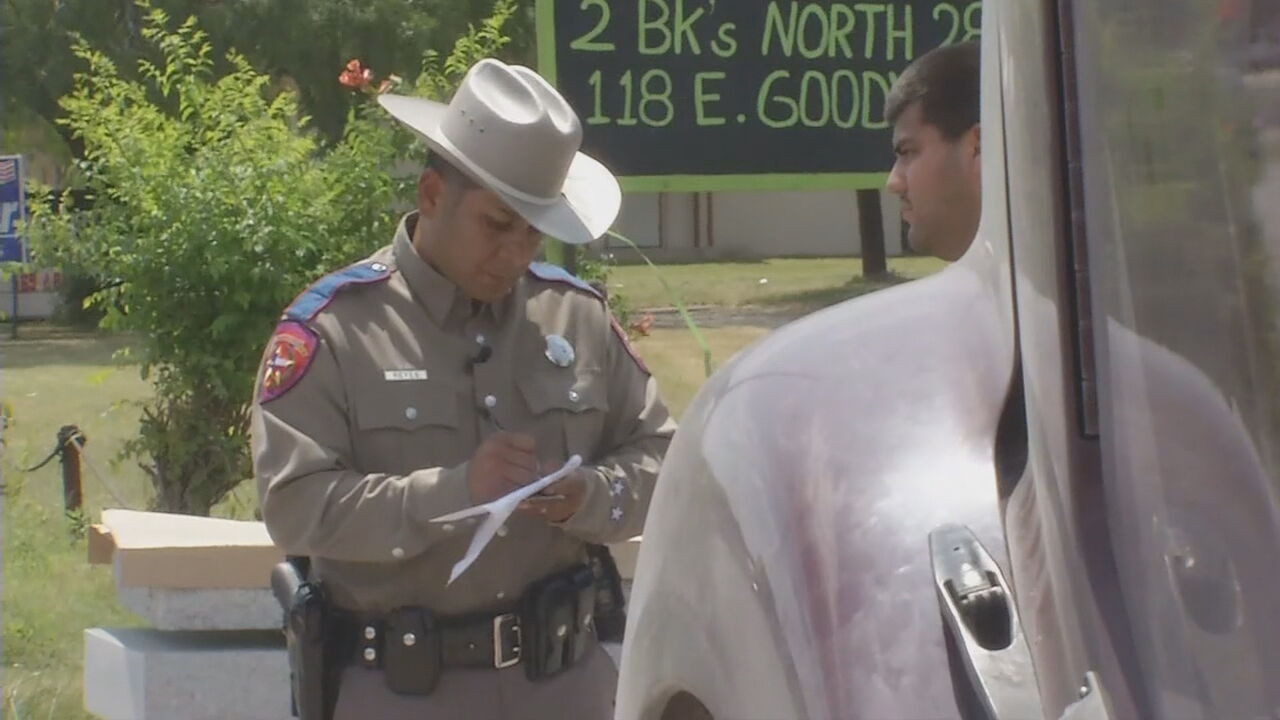SAN ANTONIO – A traffic stop could take an unexpected turn. Immigration enforcement is coming to Texas highways as part of a new agreement between the state and the federal government.
The state highway patrol will now have some of the same authority as ICE.
When a Texas driver gets pulled over, the stop usually ends with a ticket or a warning, but soon, some traffic stops could lead to immigration checks.
Nearly 60% of Texas counties have now signed on to a federal partnership that allows deputies to enforce immigration law, a sharp increase from just a few months ago. Roughly 3,500 Texas state highway patrolmen will soon have the power to enforce federal immigration laws.
It’s part of a new agreement with ICE called the 287(g) program, giving the highway patrol and Department of Public Safety (DPS) investigators many of the same powers as federal agents.
But could it lead to civil rights issues?
Kate Lincoln-Goldfinch, an immigration attorney, said, “That means someone who’s pulled over for speeding or maybe even because they have toll bills on their account, they could get pulled over and racially profiled.”
DPS declined an interview but confirmed that troopers across the state will be participating.
“The fact that they’re now signing a 287(g) for certain parts of their agency is just a formalization of what they’ve already been doing in practice for months now,” said Lincoln-Goldfinch.
A new state law will require most counties to sign one of these agreements by January. So far, about 150 counties have already complied, including Bexar County. But Sheriff Javier Salazar says their program will look very different from DPS’.
If you see a patrol car driving by,” Salazar said, “rest assured that deputy is not there to enforce immigration laws. That deputy is there to help.
Bexar County is using the warrant service officer model, which means serving and executing administrative warrants on migrants in local custody. Salazar says his approach keeps the county compliant without extra cost to taxpayers.
“That deputy will not be tasked with asking any information from anybody regarding where they were born or what their immigration status is,” he added.
One deputy will receive online training to help ICE serve warrants at the jail, a way to avoid significant overtime, something the sheriff’s office was already battling before this program. Salazar hopes defining the partnership early will reduce fear in the community and protect the county if any of the requirements change.
“A law like Senate Bill 8 puts counties in a really difficult position,” said Lincoln-Goldfinch.
Meanwhile, groups like the Texas Civil Rights Project say expanding the program will drain time and money from true public safety.
DPS says it’s just one part of a larger federal partnership, including strike teams that already work alongside ICE and Homeland Security. By next December, nearly every Texas county will have to implement one of these models because of the state law.
